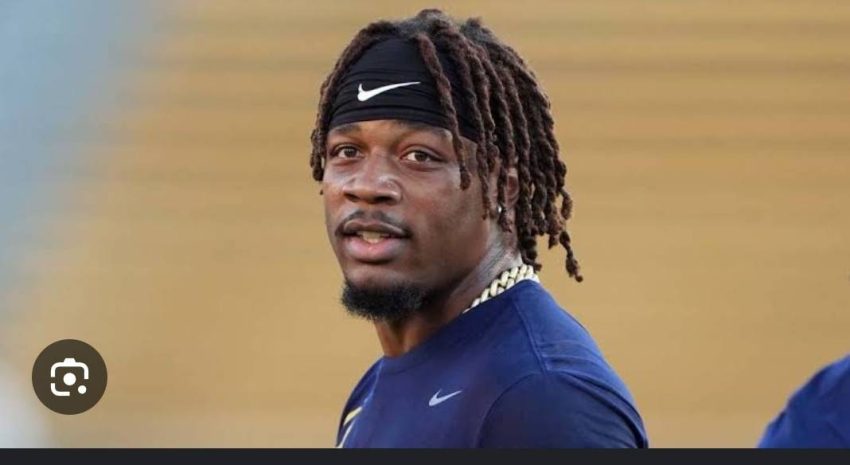Nyziah Hunter: The Controversial Transfer Saga and Decision to Commit to Ole Miss
In the unpredictable world of college football transfers, few stories are as perplexing and eye-catching as the one surrounding Nyziah Hunter, the former Nebraska Cornhuskers defensive back who created waves with his shocking decision to turn down not one but two of the most prominent programs in college football: the Alabama Crimson Tide and the Ole Miss Rebels. Hunter’s commitment to Ole Miss, after initially appearing set to join the Crimson Tide, has ignited a firestorm of discussion and controversy in the college football landscape.
Hunter’s decision to transfer came as no surprise to many who followed his career at Nebraska. A highly-touted recruit, Hunter’s early years with the Cornhuskers were marked by flashes of brilliance, yet inconsistency seemed to plague his development. Though he showed promise as a versatile defensive back, Nebraska struggled to fully capitalize on his talents, leaving Hunter in search of a fresh start. When news broke that Hunter was entering the transfer portal, a wave of excitement and speculation rippled through the college football world.
As expected, major programs quickly took notice of Hunter’s potential. The Alabama Crimson Tide, known for their relentless recruiting machine and impeccable track record of developing defensive backs, immediately became one of the front-runners in the race for his services. Nick Saban’s program, a perennial powerhouse, has a long history of attracting top-tier talent, and Hunter seemed like a perfect fit for the program’s defensive schemes. It seemed like a done deal—until it wasn’t.
Rumors began swirling that Hunter had narrowed down his choices to two powerhouses: Alabama and Ole Miss. The allure of joining the Crimson Tide was undeniable, but Hunter’s decision-making process took an unexpected turn. In a move that shocked many, Hunter publicly committed to Ole Miss. The Rebels, led by head coach Lane Kiffin, had quietly made an aggressive push to land the transfer, and their efforts bore fruit. However, this decision was met with a mixture of surprise, skepticism, and intrigue.
The controversy surrounding Hunter’s commitment stems not just from the surprising nature of his decision, but from the broader implications it carries. For one, many college football fans and analysts were left scratching their heads as to why Hunter would choose Ole Miss over a program with the prestige and pedigree of Alabama. While the Crimson Tide has long been a beacon of success, especially on defense, Hunter’s decision to spurn them for Ole Miss raised questions about the motivations behind his choice. Was it the promise of more playing time at Ole Miss? Was it the allure of Kiffin’s high-octane offense and the possibility of playing in a system that could better showcase his talents?
For many, the decision also raises questions about the changing dynamics of college football recruiting and transfers. The era of the transfer portal has turned traditional recruiting on its head, giving players unprecedented power in shaping their careers. For all its benefits, this newfound freedom has also led to an environment of constant unpredictability, where decisions often appear as if made on a whim, without regard for long-standing traditions or programs that have consistently been at the top.
Moreover, some skeptics have pointed out that Hunter’s decision could be a reflection of the rapidly evolving coaching landscape in college football. Kiffin, known for his innovative approach to offense and his reputation for revitalizing programs, has done wonders at Ole Miss, yet there’s still a cloud of uncertainty surrounding the future of his tenure. With Alabama seemingly offering a more stable and secure path to championships, why would Hunter choose a program that, while promising, is still in a rebuilding phase? For some, it’s a sign of the shifting winds in college football, where success is no longer determined solely by history and tradition.
Hunter’s decision has certainly sparked debate, with many questioning the long-term impact of such moves on college football’s power structure. Is the allure of fresh opportunities and a more prominent role enough to sway top-tier players like Hunter, even when they are passing up the chance to join programs with rich histories of winning? Or is the transfer portal system, with its abundance of options, leading to a dilution of college football’s traditional powerhouses?
Ultimately, Nyziah Hunter’s commitment to Ole Miss, following his unexpected decision to turn down Alabama, speaks to the increasingly complex nature of player decisions in the modern college football world. It’s a bold move that will be dissected for years to come, raising important questions about the direction of the sport and the priorities of its players. Time will tell whether Hunter’s decision will pay off, but one thing is for certain: his transfer saga will remain one of the most memorable stories of the college football season.
